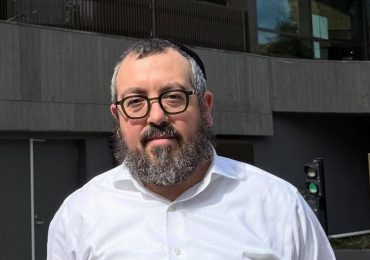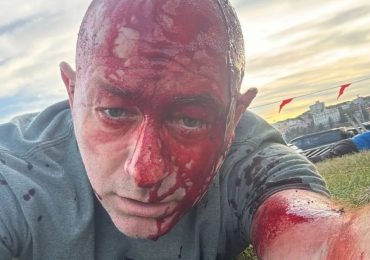Monday, Jan. 27, marks 80 years since the liberation of the Auschwitz-Birkenau concentration camp. Ten days prior to the opening of the gates, Raoul Wallenberg, a Swedish diplomat who saved tens of thousands of Hungarian Jews, was detained. He disappeared and his fate remains unknown.
These events highlight humanity’s capacity for both profound cruelty and remarkable courage.
[time-brightcove not-tgx=”true”]
The Holocaust revealed the deadly consequences of antisemitism, yet this hatred did not end in 1945. Antisemitism remains a stark indicator of societal decay. History shows that while it starts with Jews, it rarely ends there.
In the present day, two critical questions remain. What have we learned and what are we doing to prevent such atrocities from happening again? The world vowed to remember the six million Jews murdered during the Holocaust and to learn from this dark chapter. The promise of “Never Again” was enshrined in the Genocide Convention.
Yet, genocides and atrocities have continued in Cambodia, Rwanda, Darfur, Sudan, and Ukraine. These tragedies remind us that remembrance alone is not enough. We must act.
On Oct. 7, 2023, Hamas launched a brutal attack on Israel, killing over 1,200 people and taking more than 250 hostages. In its aftermath, global antisemitism surged. Synagogues, schools, Jewish community centers, and businesses became targets. Individuals were attacked simply for being Jewish.
Social media has amplified this hatred, aiding the spread of dangerous lies and prompting animus against Jews and Israel. The Internet has been rife with misinformation and conspiracy theories. Algorithms designed to prioritize engagement have amplified harmful narratives, creating echo chambers where hate thrives. Accountability is critical—social media platforms must address their role in spreading dangerous misinformation.
Implementing the IHRA’s (International Holocaust Remembrance Alliance) definition of antisemitism across governments, institutions, and corporations is essential. It provides clear guidelines for identifying and combating antisemitism, ensuring hate speech and discrimination are unequivocally condemned.
While democratic debate over Israel’s policies is legitimate, it should not devolve into hate or incitement to genocide. Recent happenings across the globe—from Australia to Canada—have reported concerning incidents including swastika vandalism being spray-painted on a synagogue. This is not political discourse. It is genocidal incitement and it must not be normalized.
Governments and international institutions need to take action, such as prosecuting hate crimes and ensuring that organizations like the International Court of Justice are not weaponized to vilify Israel while overlooking the genocidal rhetoric and intent of entities like Hamas and Iran.
The Holocaust teaches us the danger of silence in the face of hate. Indifference allows bigotry to spread unchecked, often with devastating consequences. Governments, civil society, businesses, and individuals must speak out against antisemitism and protect the rights of all vulnerable people.
Education is critical. Hatred is stoked by words and ideas, not violence alone. Teachings about the Holocaust are vital—not just for Jewish students, but as part of a global effort to build empathy and combat intolerance.
Forming deeper alliances across communities is also essential. By standing together against extremism and fostering understanding through dialogue, we can create a stronger, united front against hate.
The 80th anniversary of Auschwitz’s liberation is a time to reflect, but it should also serve as a call to action. The rise of antisemitism demands a decisive response. Drawing inspiration from Wallenberg’s unwavering commitment to human dignity, we are reminded that each of us has a role to play in stopping ongoing atrocities and preventing future ones. Let us honor his legacy by standing united against hate and building a future where human dignity prevails.
Leave a comment








